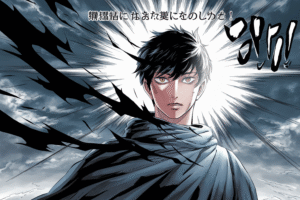Tom Morello Responds to Trolls as Rage Against The Machine’s Milestone Stuns Fans
Celebrating a Billion Streams: Rage Against The Machine’s Enduring Legacy
Rage Against The Machine (RATM), the revolutionary rock band known for its powerful fusion of music and activism, has reached an extraordinary milestone. Their iconic track, “Killing In The Name,” recently surpassed one billion streams on Spotify. This achievement is a testament to the band’s enduring relevance and the power of their message, decades after its release. Guitarist Tom Morello took to social media to acknowledge this historic moment and share his thoughts with fans and critics.
On X (formerly Twitter), Morello celebrated the achievement with his signature wit and incisive commentary. He wrote:
“‘KILLING IN THE NAME’ just hit 1 billion streams on Spotify! Thanks to all those who listened to it: those who love it, those who hate it, and those that have enjoyed it without understanding it. Righteous proof that rebel music and irony are alive and well.”
Morello’s message was not only a celebration but also a subtle jab at those who have misunderstood the song’s deeper meaning over the years.
Tom Morello has long been vocal about the political and social messages embedded in Rage Against The Machine’s music. Over the years, he has frequently called out fans who enjoy the band’s music while failing to grasp—or outright rejecting—their progressive ideals.
One of Morello’s previous tweets exemplifies this frustration. He criticized certain fans, referencing former U.S. politician Paul Ryan as an example, for completely missing the band’s ethos:
“Never ceases to amaze me how many folks who’ve heard RATM are in Paul Ryan mode, having literally ZERO understanding of anything that band was about and even less understanding where any of us might stand on contemporary issues.”
Morello’s commentary sheds light on a paradox in the band’s following: how a song like “Killing In The Name,” which is a blistering critique of institutional racism and police brutality, could resonate with listeners who hold opposing views.
The Viral Story of a Misinterpreted Anthem
Tom Morello often uses anecdotes to highlight how RATM’s messages have been misunderstood. One particularly striking story he shared involved a conversation with a couple who claimed to be fans of “Killing In The Name.” During a casual chat, the woman praised the song for helping her rebel against her parents and, later, against vaccines.
Morello didn’t hold back in setting the record straight. He explained:
“‘Ma’am, that song is about racist cops who often behave like the Ku Klux Klan in service of historical white supremacy and are boot-licking lackeys and thugs of the racist capitalist ruling class.’”
The reaction? A stunned silence. Morello humorously added:
“She sat there chewing and blinking, chewing and blinking.”
The story underscores the irony Morello often encounters when engaging with fans who have appropriated RATM’s music for purposes entirely misaligned with its original intent.
Addressing the “Irony” of RATM Fans
Rage Against The Machine’s music has always been deeply political, but not everyone in their fanbase has embraced this aspect. Over the years, Morello and the band have faced criticism—and outright disbelief—from fans who claim they “didn’t know” RATM was political.
Morello has addressed this disconnect with humor and candor, particularly on social media. In response to one user questioning his critique of a fan’s misinterpretation, Morello remarked:
“If she presumes to tell a fella who was actually in the room when the song was written what the song is ‘really’ about, then I reserve the right to raise my hand and say, ‘no, ma’am.’”
This incident is part of a broader trend where Morello and others within the band have had to clarify RATM’s purpose as a voice against systemic oppression, inequality, and the excesses of capitalism.
The Power of “Killing In The Name”
“Killing In The Name” remains one of Rage Against The Machine’s most powerful and enduring tracks. Released in 1992 as part of their self-titled debut album, the song is a searing indictment of police brutality and institutional racism. Its famous refrain, “F*** you, I won’t do what you tell me,” has become an anthem of resistance and defiance worldwide.
The song’s relentless energy and uncompromising message have resonated with generations of listeners. Even today, it serves as a rallying cry for protests and movements advocating for justice and equality.
Reaching one billion streams on Spotify highlights not only the song’s enduring popularity but also its relevance in contemporary struggles against systemic oppression.
Rebel Music and the Irony of Misinterpretation
Morello’s reflection on the song’s streaming milestone also emphasized the irony surrounding its reception. While many fans have embraced the rebellious spirit of “Killing In The Name,” others have missed—or ignored—the political undertones that define the track.
In his post, Morello acknowledged this duality:
“Righteous proof that rebel music and irony are alive and well.”
This statement speaks to the unique cultural position of Rage Against The Machine. Their music transcends simple categorization, appealing to listeners from all walks of life, even as it challenges them to confront uncomfortable truths.
Why RATM’s Message Matters Today
The continued success of “Killing In The Name” serves as a reminder of the enduring need for music that confronts injustice and inspires change. Decades after its release, the issues the song addresses—systemic racism, police brutality, and the abuses of power—remain as relevant as ever.
For Rage Against The Machine, the milestone is not just a celebration of their past but a call to action for the present. It reinforces their belief in the power of music to challenge the status quo and amplify the voices of the marginalized.
Conclusion: More Than Just a Milestone
Rage Against The Machine’s achievement of one billion Spotify streams for “Killing In The Name” is a testament to their lasting impact on music and society. While the milestone is a cause for celebration, it also serves as a reminder of the band’s unyielding commitment to addressing critical issues through their art.
Tom Morello’s candid reflections on the milestone, and his interactions with fans, highlight the complexities of being part of a band whose music is both celebrated and misunderstood. Despite the irony of misinterpretation, Rage Against The Machine continues to inspire, provoke, and challenge listeners to think critically about the world around them.
As Morello’s post suggests, the power of rebel music lies not only in its ability to entertain but also in its capacity to educate, empower, and ignite change. With their legacy firmly cemented, Rage Against The Machine remains a force for revolution in the world of music and beyond.














Post Comment